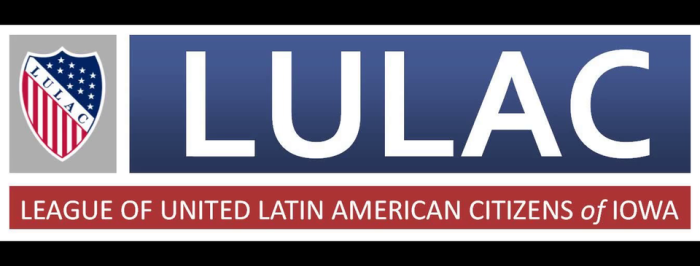The League of United Latin American Citizens (LULAC) of Iowa is seeking a judicial order declaring that the state’s English-only law “does not apply to voting materials, including ballots, registration and voting notices, forms, instructions, and other materials and information relating to the electoral process.”
The state’s largest Latino advocacy organization filed suit in Polk County District Court on October 27, according to the Democracy Docket website founded by Democratic voting rights attorney Marc Elias. His law firm is representing LULAC in this and other cases related to voting rights.
LULAC previously petitioned Secretary of State Paul Pate to allow county auditors across Iowa to accept official Spanish-language translations of voter registration and absentee ballot request forms. However, Pate’s legal counsel informed the group in late September that the Secretary of State’s office “is still under an injunction” from 2008 “which prevents the dissemination of official voter registration forms for this state in languages other than English.”
In that 2008 case, known as King v Mauro, a judge determined that when Iowa lawmakers passed the English-only law in 2002, they “intended English to be the exclusive language used in official documents unless one of the exceptions is implicated.” The judge speculated that the federal Voting Rights Act might justify printing election-related materials in other languages, but noted that the state did not argue the point in court. For reasons that remain unclear, the state did not appeal the King v Mauro decision.
The “Rights Exception” is the central legal claim of the new lawsuit. The 2002 law says the statute “shall not apply” to “Any language usage required by or necessary to secure the rights guaranteed by the Constitution and laws of the United States of America or the Constitution of the State of Iowa.” Since the state and federal constitutions as well as federal law protect the right to vote, LULAC argues the English-only restrictions should not apply to voting materials.
Currently, only Buena Vista County (containing the Storm Lake area) is able to provide voting materials in Spanish under minority language protections in Section 203 of the federal Voting Rights Act. But LULAC’s petition notes, “Although Buena Vista County has a particularly high concentration of Spanish speakers, over 97 percent of Iowa’s Spanish-speaking citizens of voting age” live outside the county, according to U.S. Census Bureau estimates. Census data indicates that more than 8 percent of Iowans “predominantly speak languages other than English,” and that Spanish is the predominant language of more than 50,000 Iowa citizens of voting age.
LULAC asserts that its members “are disproportionately burdened by the prohibition on the use of Spanish-language voting materials,” and that the organization must “divert substantial resources and attention from other critical missions” to address the adverse impact on Iowa Latinos. The organization is asking the court to determine that voting materials can be translated into other languages, and to dissolve the 2008 injunction that prohibits the state from providing voter registration forms in other languages.
The defendants are Pate, the Iowa Voter Registration Commission, and auditors from four counties, selected because they or their predecessors joined then U.S. Representative Steve King as plaintiffs in the original case. Those auditors (one was Joni Ernst of Montgomery County) were essential to obtaining the 2008 injunction. The Polk County District Court judge determined that King and other plaintiffs lacked standing to challenge then Secretary of State Michael Mauro’s decision to keep providing voter materials in Spanish, Laotian, Bosnian, and Vietnamese.
LULAC Iowa’s state political director Joe Henry told Bleeding Heartland via email on October 28 that “preventing the translation of voting material violates both the state and federal constitutional rights of tens of thousands of Iowa citizens whose primary language is not English.”
Henry added that the English-only law “has been used as a vehicle to promote racism” in Iowa, and “those who voted for it and signed it into law should have known that it could be weaponized afterwards to attack our Latino and immigrant communities. Clearly this was the intention of then legislator Steve King,” who later sued to end the practice of translating ballots and other voting material.
King was a state senator when the Republican-controlled Iowa House and Senate approved the English-only legislation. Democratic Governor Tom Vilsack vetoed the first version that reached his desk but signed a revised bill. He said publicly at the time that lawmakers “promised an additional $1 million to help people across Iowa study English.”
He later apologized for signing the bill, telling the national Democratic Party’s Latino Caucus in 2004, “It is a bad law. If I had a Democratic legislature, I would get rid of that law.” In those remarks, Vilsack said he seriously considered vetoing the bill again but was advised by staff to sign what they considered a mostly symbolic measure that 80 percent of Iowans supported.

